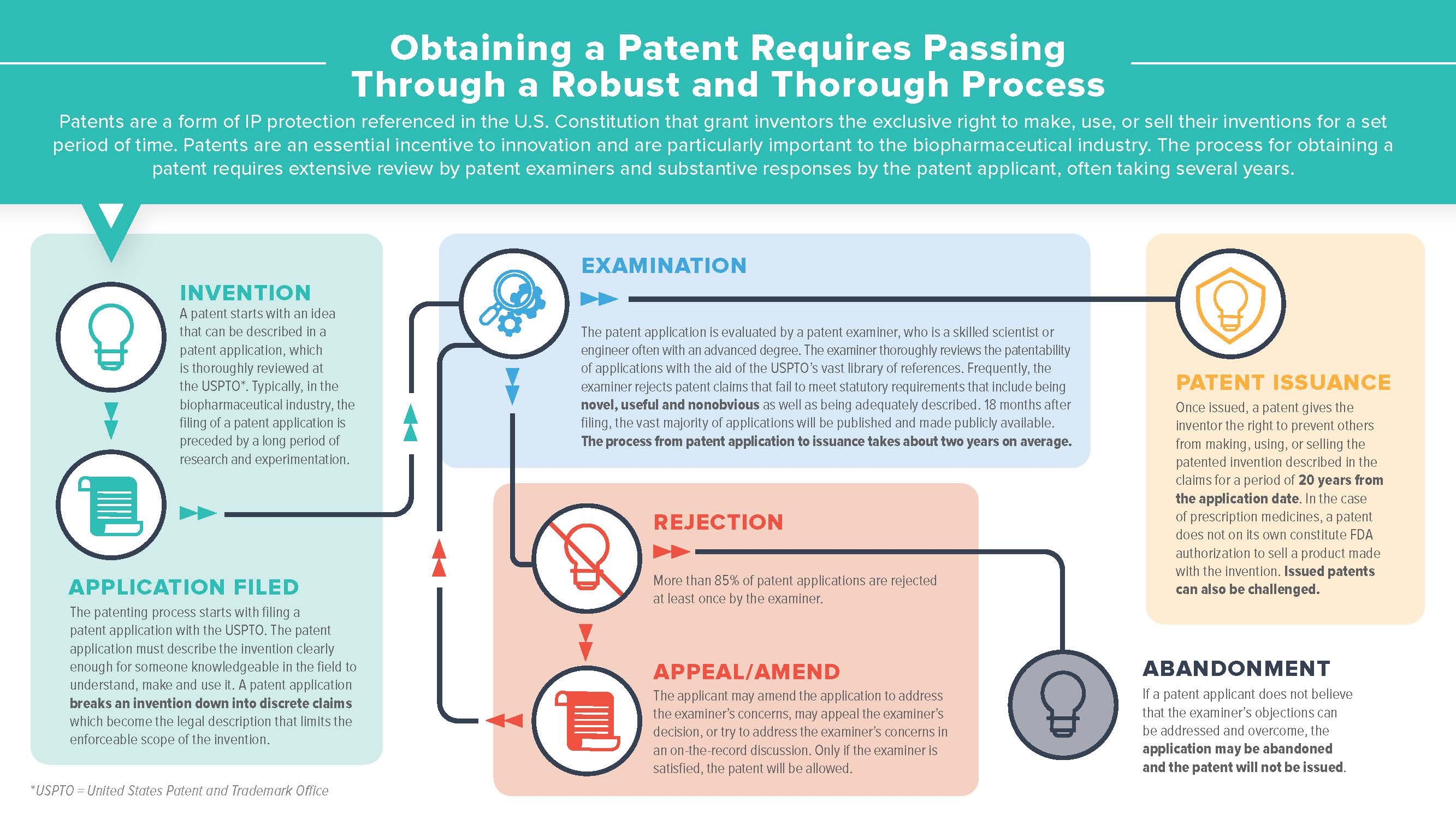Patents: Let’s Protect What’s Next
The U.S. patent system provides a critical incentive for innovation and helps to advance the development of new medicines. Yet many people may not realize the significant role that patents play in bringing new treatments to patients. Find out why patents are so important to U.S. healthcare and the economy.
What are patents?
Patents are a form of intellectual property (IP) protection. They grant inventors the exclusive right to make, use, or sell their inventions for a set period of time.1
Why do patents matter?
In the pharmaceutical industry, the patent system works to encourage innovation and helps ensure affordability and access for patients who rely on new treatments and cures. Its benefits include:
Economic growth. The United States economy was built on the idea that innovation is critical to our prosperity. Thanks to a strong U.S. patent system, IP-intensive manufacturing industries drive economic progress and collectively support 3.4 million American jobs.3 The biopharmaceutical industry is a leader in overall U.S. industrial R&D activities and investment4, contributing substantially to national, state, and local economies by supporting more than 4.9 million jobs nationwide.4
Continuous improvement. Patents are the foundation of biopharmaceutical innovation and the development of new treatments, cures, and vaccines. Patent protections incentivize manufacturers to continue working to improve their medicines and make them more effective for patients, such as by reducing the side effects of drugs or finding new diseases that a medicine can treat.1
Information-sharing. While patents grant innovators exclusive rights to their inventions for a set period of time, they also require patent-holders to publicly share information about their inventions. That transparency enables other companies to develop often lower cost generic versions of the drugs, which may enter the market after the patent protections expires.2
How does the patent process work?

Graphic source: https://www.phrma.org/-/media/Project/PhRMA/PhRMA-Org/PhRMA-Org/PDF/P-R/Patent-Process-and-Legal-Challenges-Infographics.pdf
Could changes in IP protection threaten the development of innovative treatments?
Yes. Government policies that remove an invention’s patent protection — allowing competitors to use it before the patent’s expiration — could threaten essential incentives for developing new treatments and cures.2 Without reliable IP protections, innovators — including individuals, private companies, and academic institutions — face a risk that at any point, others could unfairly profit from their inventions. Across many sectors, that risk would discourage innovators from investing the time, resources, and potentially billions of dollars devoted to inventing new technologies every year.
Sources:
1https://www.phrma.org/-/media/Project/PhRMA/PhRMA-Org/PhRMA-Org/PDF/P-R/Patent-Process-and-Legal-Challenges-Infographics.pdf
2https://www.phrma.org/policy-issues/Intellectual-Property
3 https://ndpanalytics.com/wp-content/uploads/IP-Report-April-2025-Final.pdf
4https://cdn.aglty.io/phrma/global/blog/import/pdfs/The-Econ-Impact-of-US-Biopharma-Industry-2024-Report.pdf
